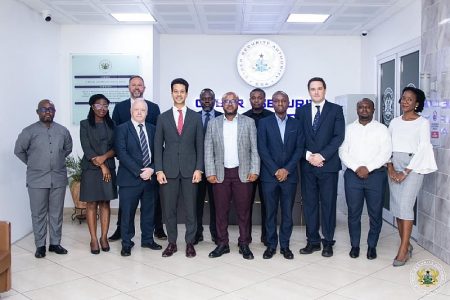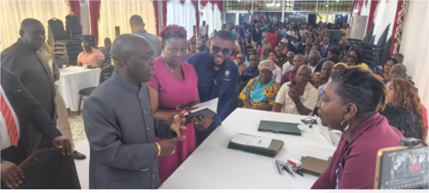The healthcare system in the Federal Capital Territory (FCT) of Nigeria is teetering on the brink of collapse, burdened by a confluence of challenges that range from critical manpower shortages and dilapidated equipment to demoralizing working conditions and unpaid allowances. The Association of Resident Doctors (ARD), FCT chapter, has issued a stark warning to the government, emphasizing the urgent need for comprehensive and immediate reforms to avert a complete systemic failure. The ARD paints a grim picture of a healthcare landscape plagued by chronic understaffing, where doctors are stretched thin, often responsible for an overwhelming number of patients, leading to immense physical and mental strain. This dire situation is exacerbated by the lack of functional equipment, with essential diagnostic tools like X-ray machines remaining inoperable for years, forcing patients seeking critical services like dialysis to be turned away due to shortages of consumables. The cumulative effect of these challenges has created a demoralized and overworked healthcare workforce, struggling to provide adequate care under increasingly untenable conditions.
The ARD’s concerns extend beyond the immediate physical limitations of the healthcare system. The association highlights the long-standing neglect of healthcare worker welfare, citing persistent issues with unpaid salaries, delayed promotions, and the underpayment of promoted staff. This systemic disregard for the well-being of healthcare professionals has contributed to a significant exodus of skilled personnel from the FCT, further exacerbating the existing manpower shortage. The lack of investment in recruiting and retaining healthcare workers has left the system vulnerable and unable to meet the growing demands of the population. The ARD argues that this chronic understaffing, coupled with the lack of essential resources, creates a vicious cycle of decline, ultimately jeopardizing the quality of care provided to patients.
The ARD emphasizes that the current state of the FCT healthcare system is not merely a consequence of recent challenges but rather a manifestation of long-standing systemic failures. The association points to a lack of strategic planning and inadequate investment in infrastructure and human resources as the root causes of the current crisis. The last major recruitment drive for doctors occurred in 2011, and since then, attrition through retirement, death, and emigration has further depleted the already thin ranks of healthcare professionals, without adequate replacement. This chronic understaffing has placed an unbearable burden on the remaining doctors, forcing them to work long hours, cover multiple departments, and manage an unsustainable patient load. The ARD argues that this constant state of overwork and under-resourcing is not only detrimental to the physical and mental health of healthcare workers but also compromises the quality of care they are able to provide.
Adding to the complexity of the situation is the ARD’s assertion that frontline healthcare professionals are often excluded from critical decision-making processes. The association contends that funds are frequently allocated to less critical projects, while urgent needs like essential supplies and adequate staffing are consistently overlooked. This disconnect between resource allocation and actual needs further contributes to the inefficiencies and inadequacies that plague the FCT healthcare system. The ARD argues that meaningful reform requires the active involvement of healthcare professionals in planning and decision-making, ensuring that resources are directed towards addressing the most pressing challenges on the ground.
The ARD has presented a clear and urgent call to action, demanding immediate intervention from the FCT administration to address the critical challenges facing the healthcare system. The association has given the administration a one-week deadline to initiate meaningful reforms, particularly focusing on staffing and the welfare of healthcare workers. The ARD has warned that failure to meet these demands within the stipulated timeframe will result in a one-week warning strike, a move that could further disrupt healthcare services in the FCT. This ultimatum underscores the gravity of the situation and the ARD’s commitment to advocating for improved working conditions and better patient care.
In response to the ARD’s concerns, Dr. Adedolapo Fasawe, Mandate Secretary for Health Services and Environment Secretariat, has assured the association of the FCT Minister’s commitment to strengthening healthcare delivery across the capital. She has announced plans to issue appointment letters for 60 house officers, 70 pharmacists, and 60 lab scientists, indicating an effort to address the critical manpower shortage. Furthermore, Dr. Fasawe has stated that outstanding allowances are being processed, and efforts are underway to improve health insurance and drug supply. While these promises offer a glimmer of hope, the ARD remains cautiously optimistic, emphasizing the need for concrete action and sustained commitment to address the deep-rooted systemic issues plaguing the FCT healthcare system. The true test of the administration’s commitment will lie in the timely implementation of these promised reforms and the tangible improvements they bring to the working conditions of healthcare professionals and the quality of care provided to patients.














